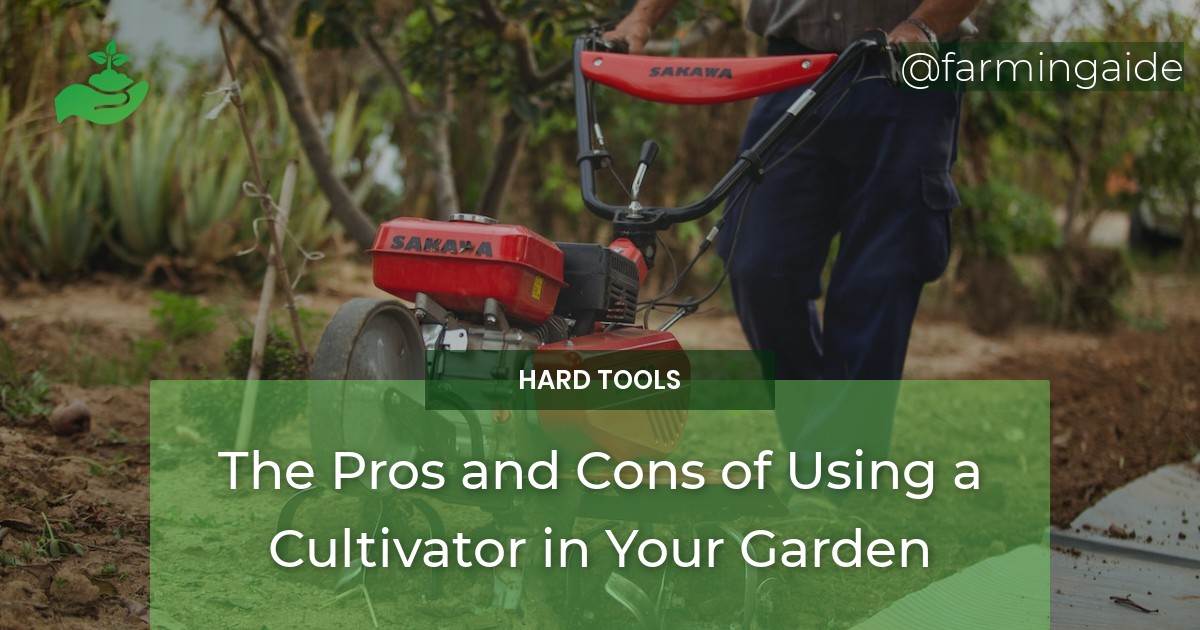If you’re a gardener, you know that soil preparation is crucial to a successful garden. One tool that can help with soil preparation is a cultivator. A cultivator is a gardening tool that tills and aerates soil, making it easier to plant seeds and seedlings. There are many pros and cons of using a cultivator to do some of your gardening tasks.
In this article, we’ll look at the advantages and disadvantages of using a cultivator in your garden, factors to consider when choosing a cultivator, and proper use and maintenance of cultivators.
Table of Contents
Advantages of Using a Cultivator in Your Garden
Saves Time and Energy:
Using a cultivator can save time and energy in the garden. Instead of breaking up soil by hand, a cultivator can quickly till and aerate soil, making it easier to plant.
Improves Soil Quality:
By breaking up compacted soil, a cultivator helps improve soil quality. Aerating the soil allows it to hold more water and nutrients, which can lead to healthier plants.
Aerates Soil and Increases Drainage:
A cultivator can also help aerate soil and increase drainage. This can be especially helpful in areas where the soil is dense or heavy.
Helps Control Weeds:
Cultivators can also help control weeds by tilling the soil and cutting off the roots of newly germinated weeds.
Disadvantages of Using a Cultivator in Your Garden
Can Damage Soil Structure:
While cultivators can be helpful, they can also cause damage to the soil structure. Overuse of a cultivator can lead to soil compaction, which can be detrimental to plant growth and health.
Can Spread Weed Seeds:
Cultivators can also spread weed seeds if they are used on mature weeds. This can lead to an increase in weeds in your garden.
May Not Be Suitable for All Garden Types:
Cultivators may not be suitable for all garden types. They can be difficult to use in raised beds or in gardens with lots of rocks or other obstructions.
Factors to Consider When Choosing a Cultivator
Garden Size:
The size of your garden will determine the size of cultivator you need. For larger gardens, a larger cultivator may be necessary.
Soil Type:
Consider the type of soil you have in your garden. If you have heavy clay soil, you may need a more powerful cultivator to break it up.
Power Source:
Cultivators can be powered by gas or electricity. Consider which power source will work best for your needs.
Cultivator Size and Weight:
Consider the size and weight of the cultivator. A compact cultivator may be easier to maneuver in a small garden, while a heavier cultivator may be necessary for larger gardens.
Proper Use and Maintenance of Cultivators
Follow Manufacturer Instructions:
Always follow the manufacturer’s instructions when using a cultivator. Improper use can lead to injury or damage to the tool.
Clean After Use:
After using a cultivator, be sure to clean it thoroughly. This will help prevent rust and other damage.
Store in a Safe and Dry Place:
Store your cultivator in a safe and dry place. This will help prevent damage and prolong the life of the tool.
In conclusion, Using a cultivator can be a great way to prepare soil for planting. However, it’s important to consider the advantages and disadvantages of using a cultivator, as well as factors to consider when choosing a cultivator. By following proper use and maintenance guidelines, you can get the most out of your cultivator and keep your garden healthy and productive. Remember to always consider the needs of your garden when deciding which gardening tools and equipment to use.


